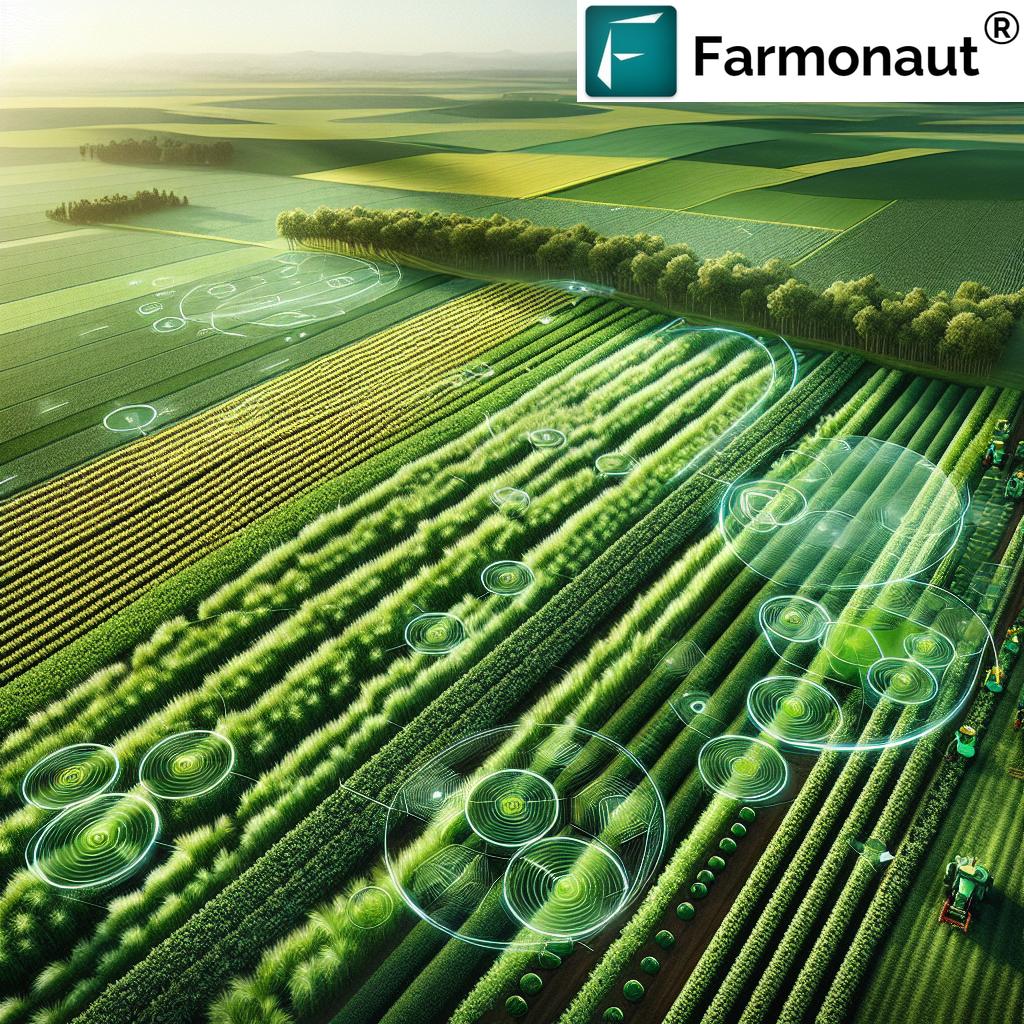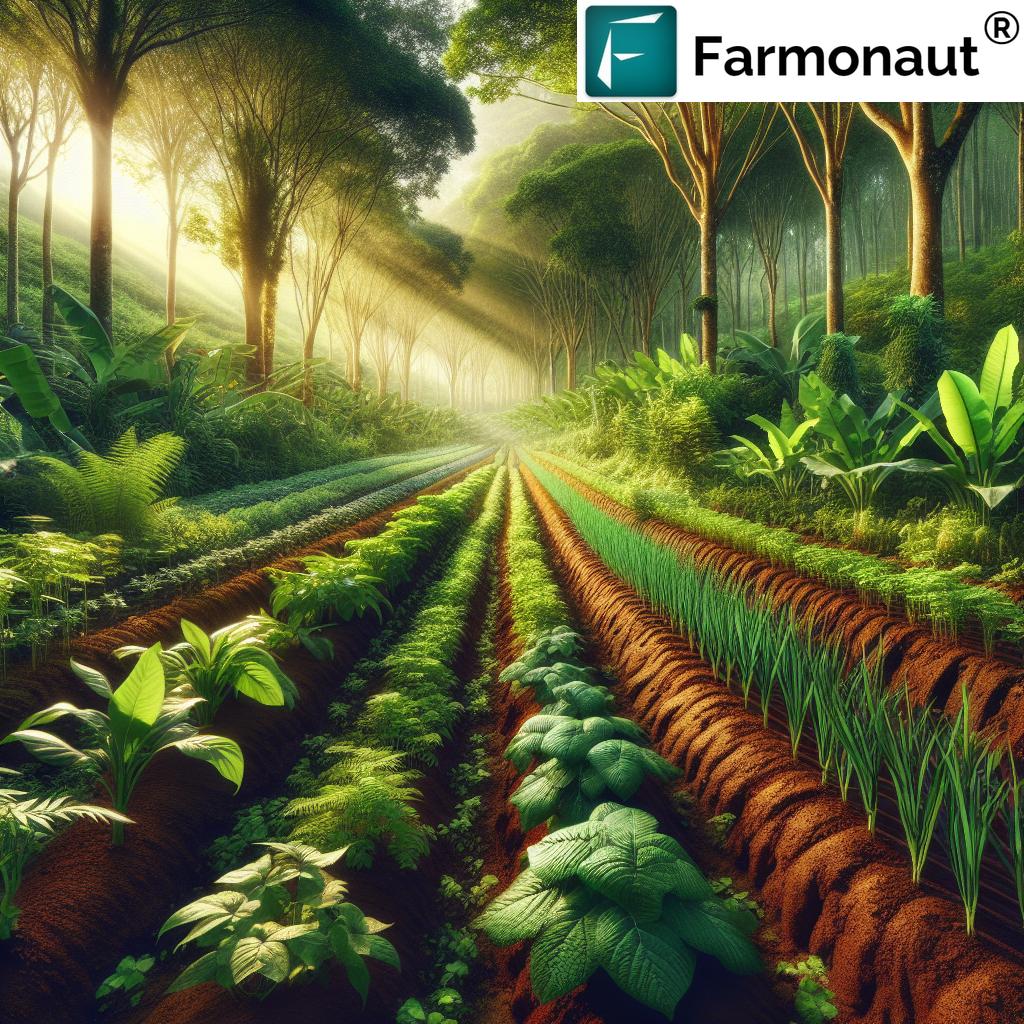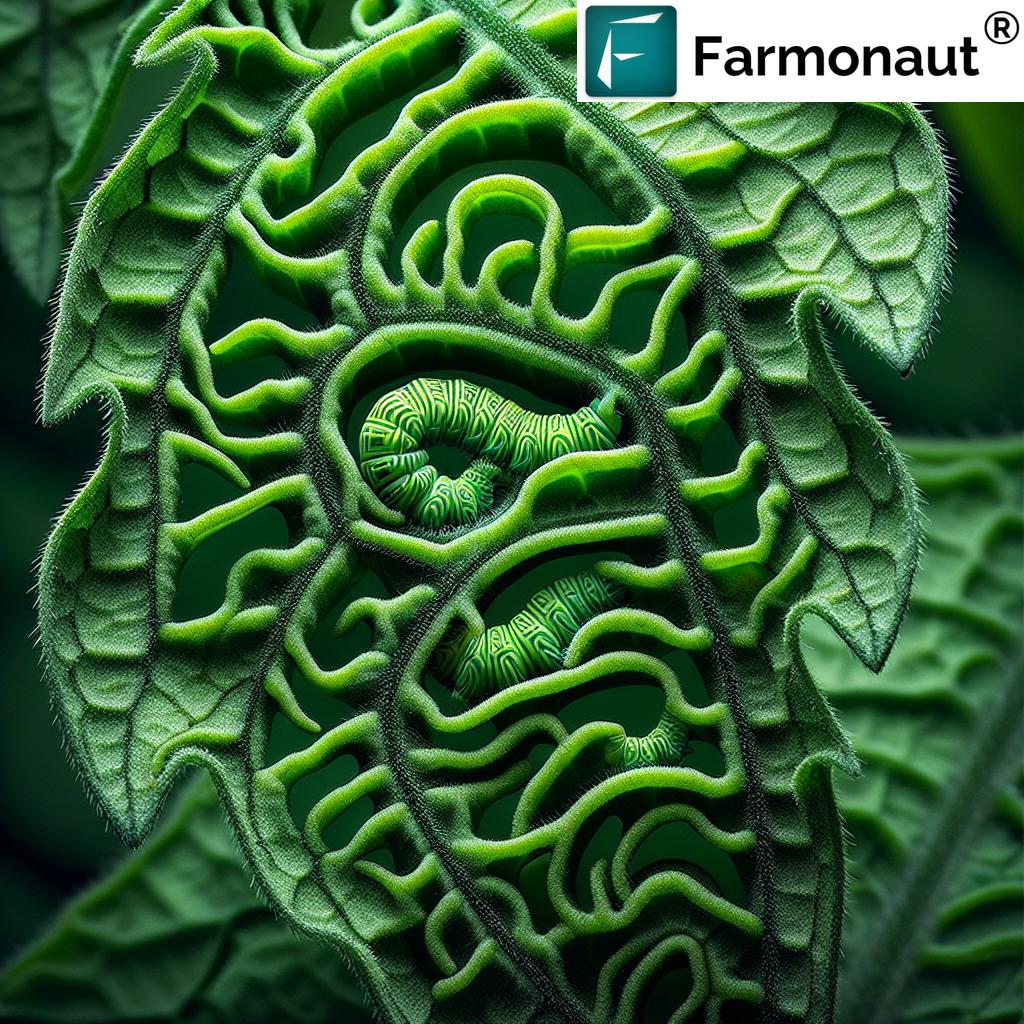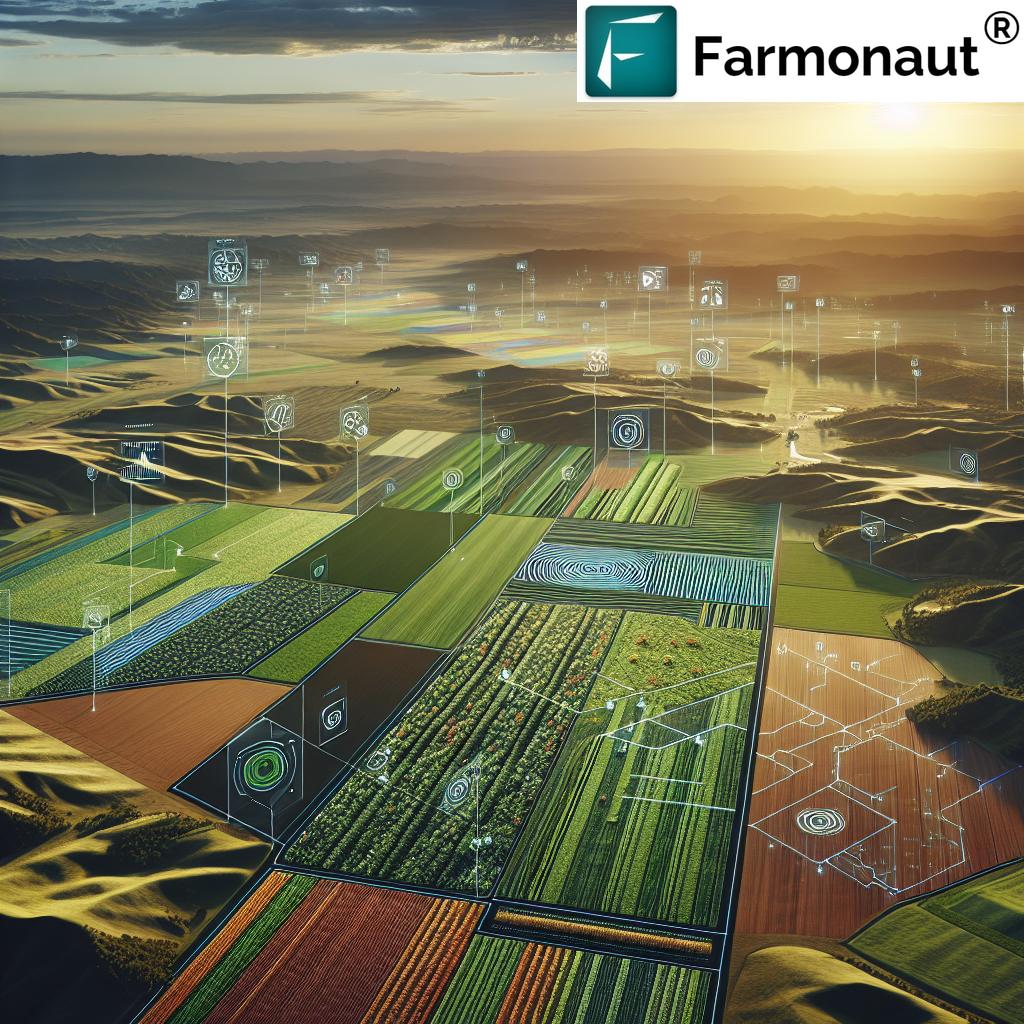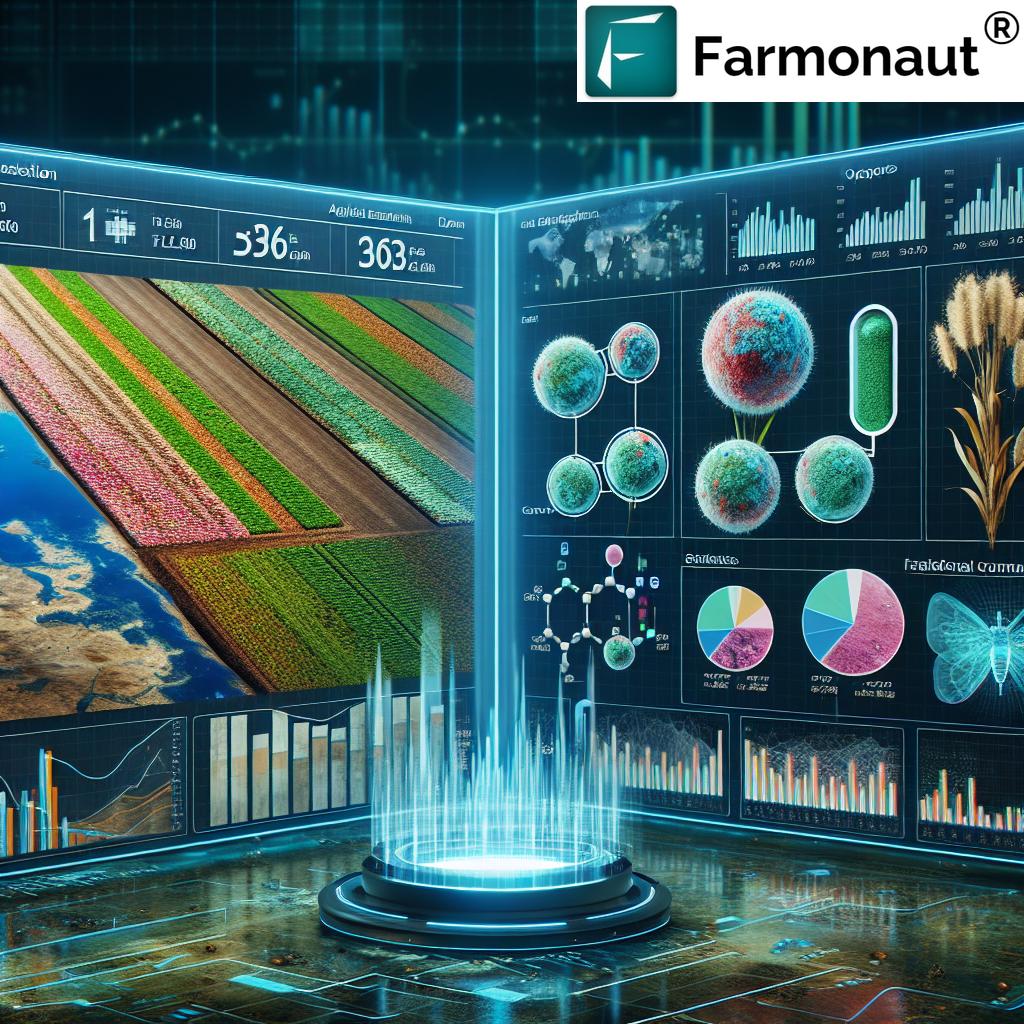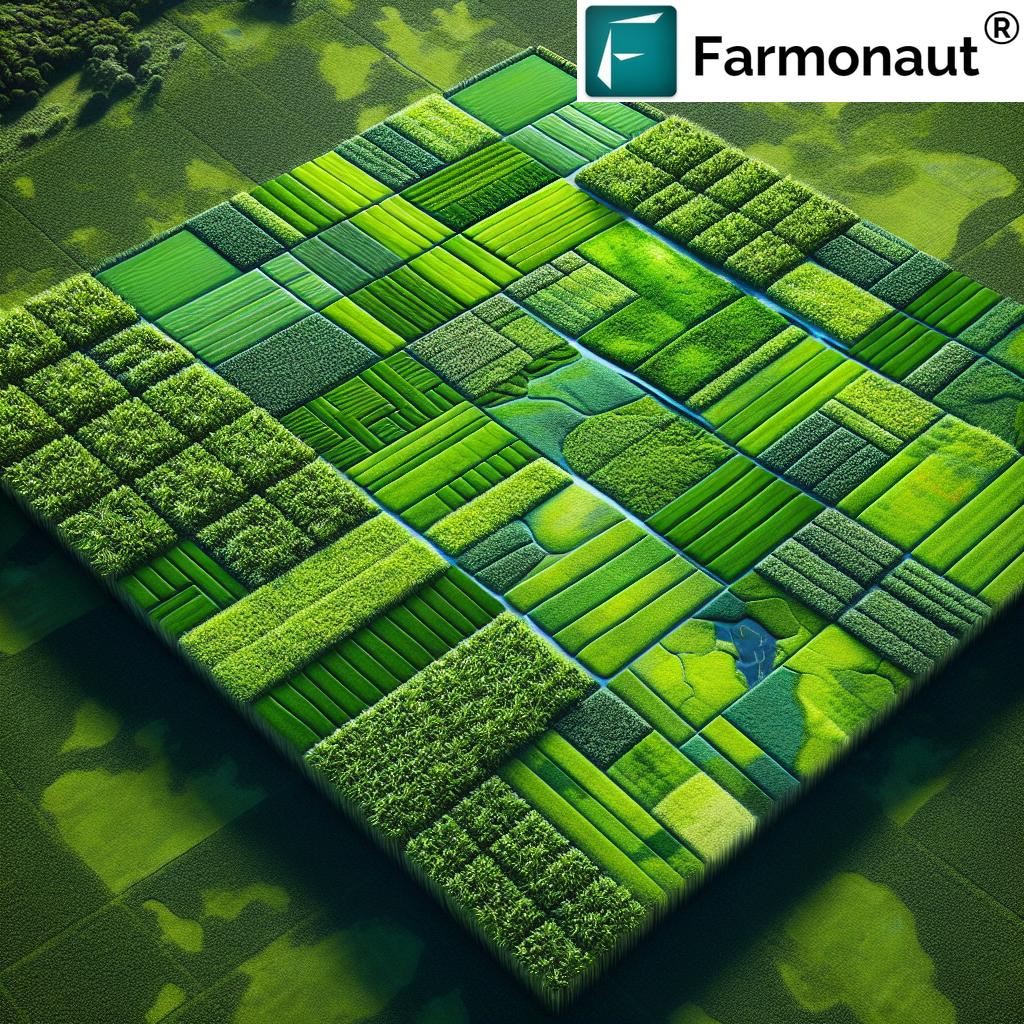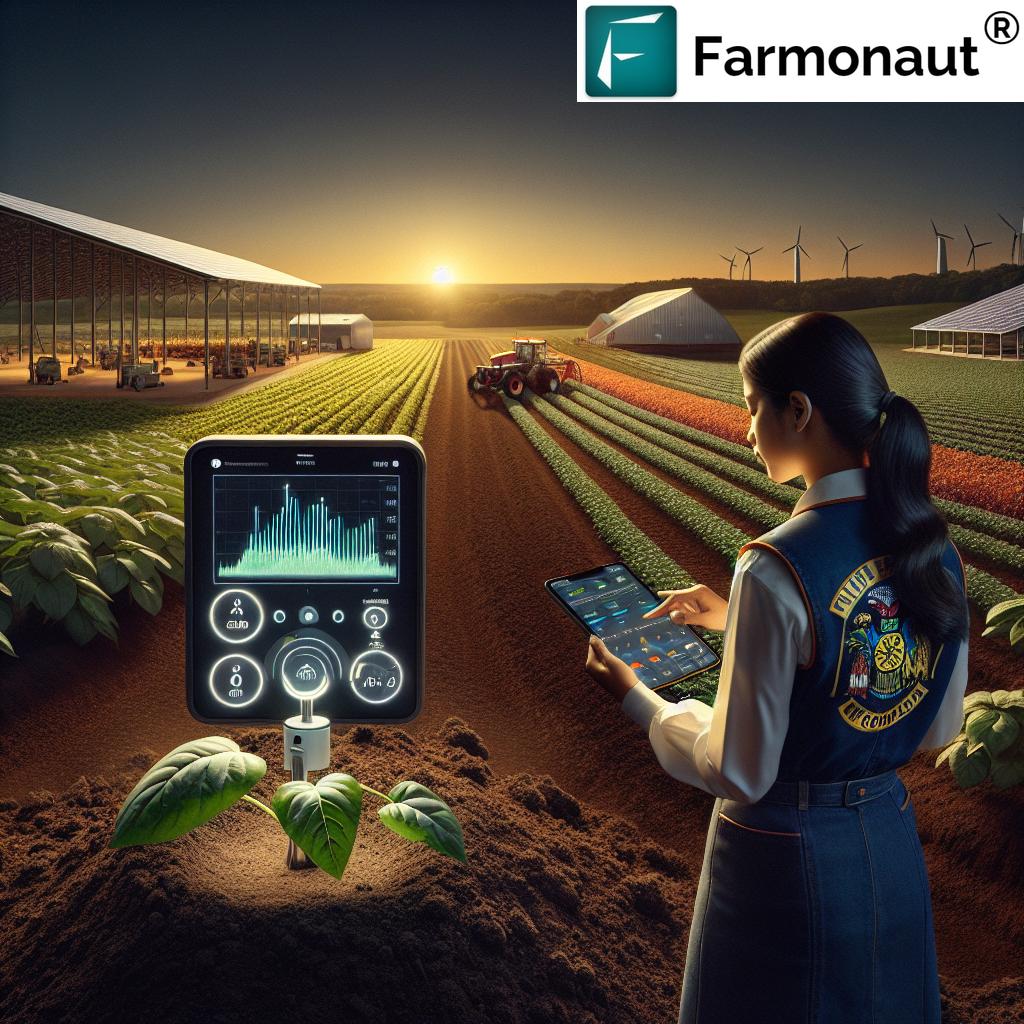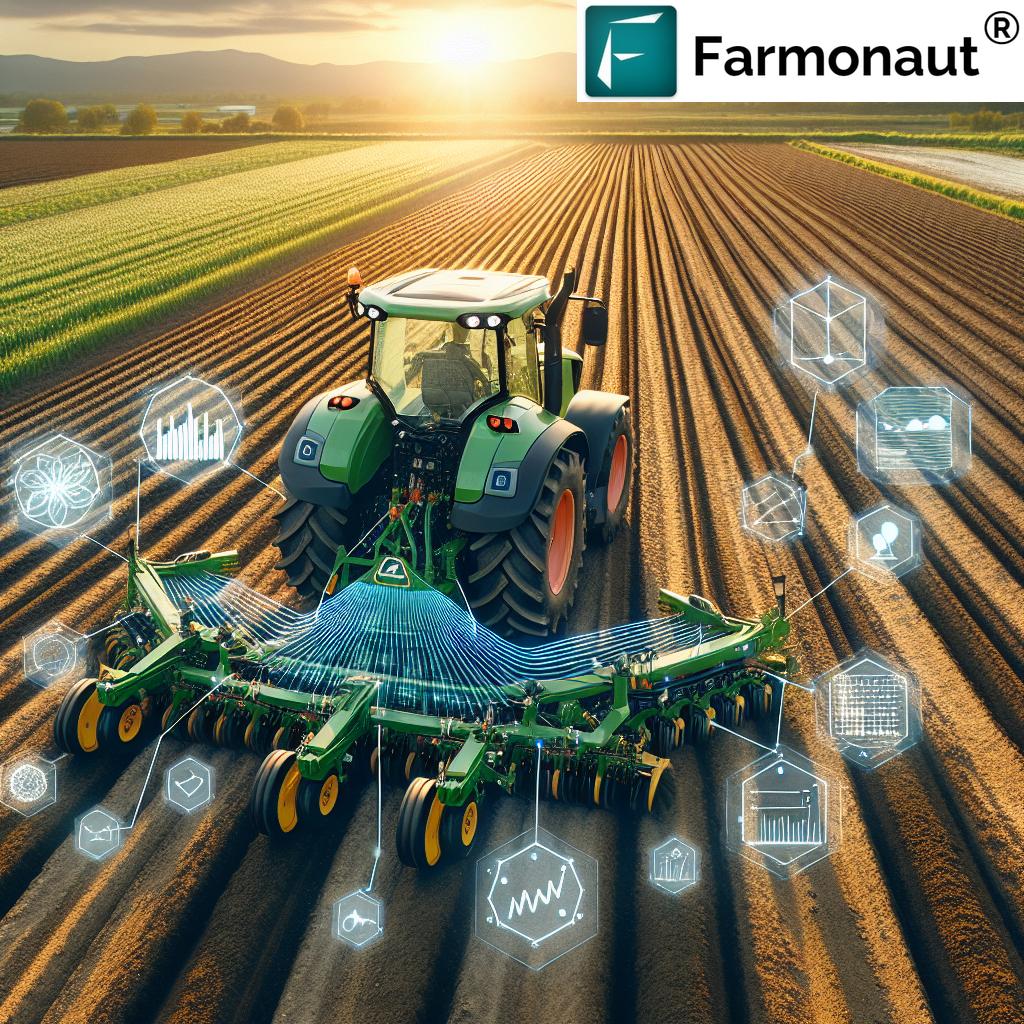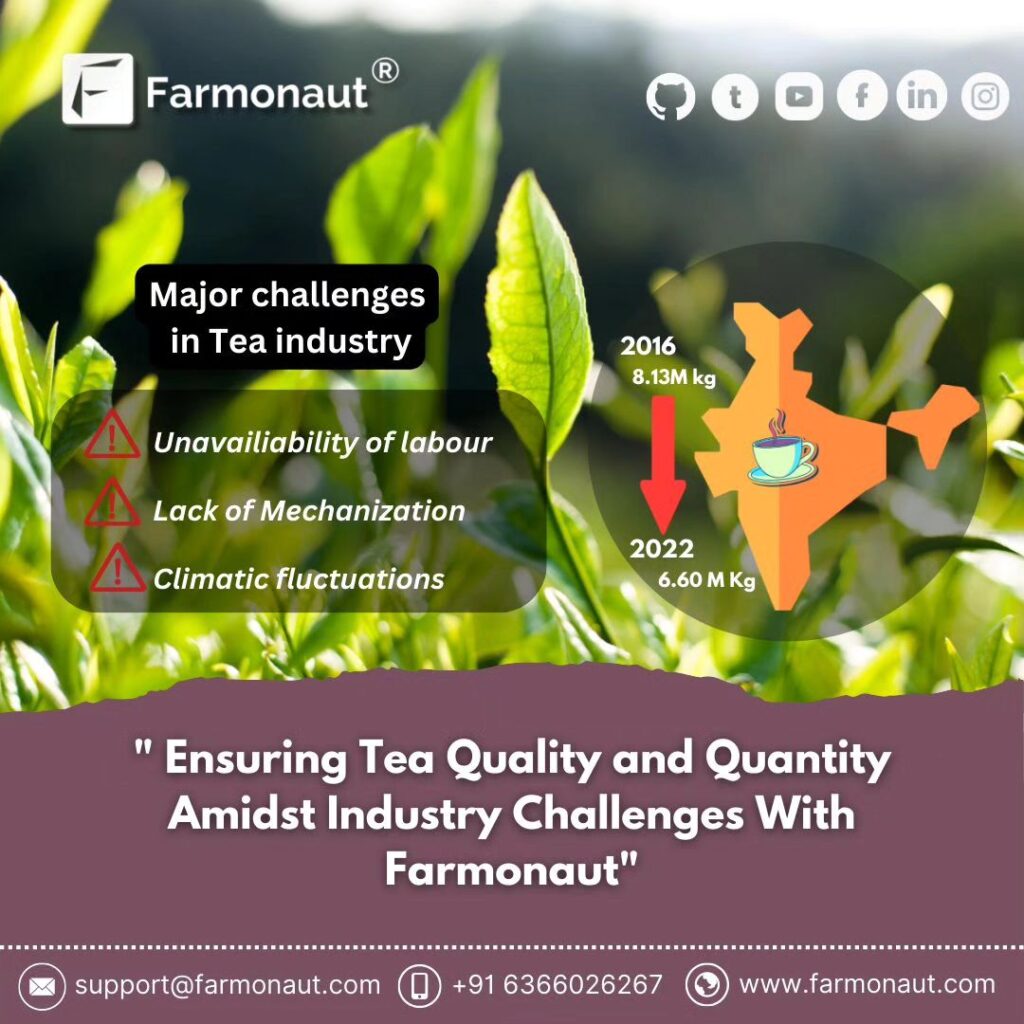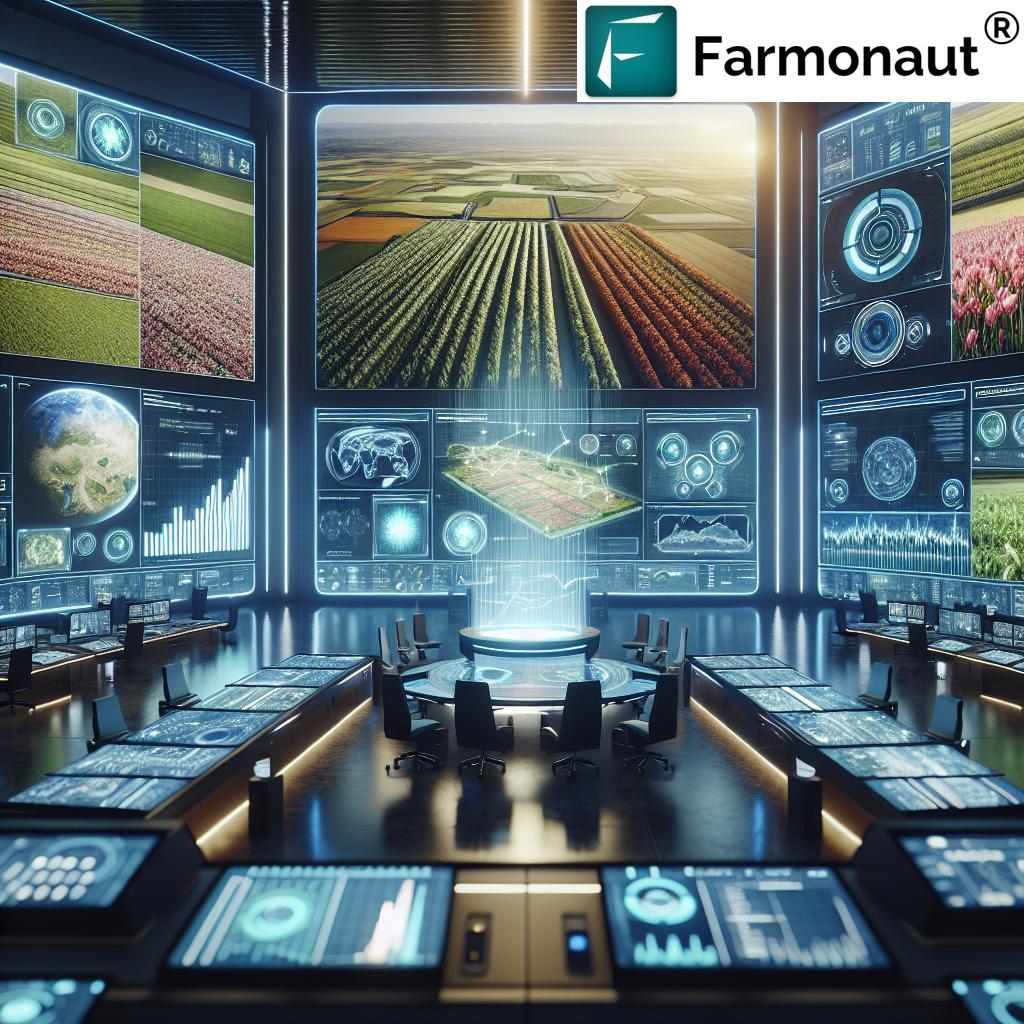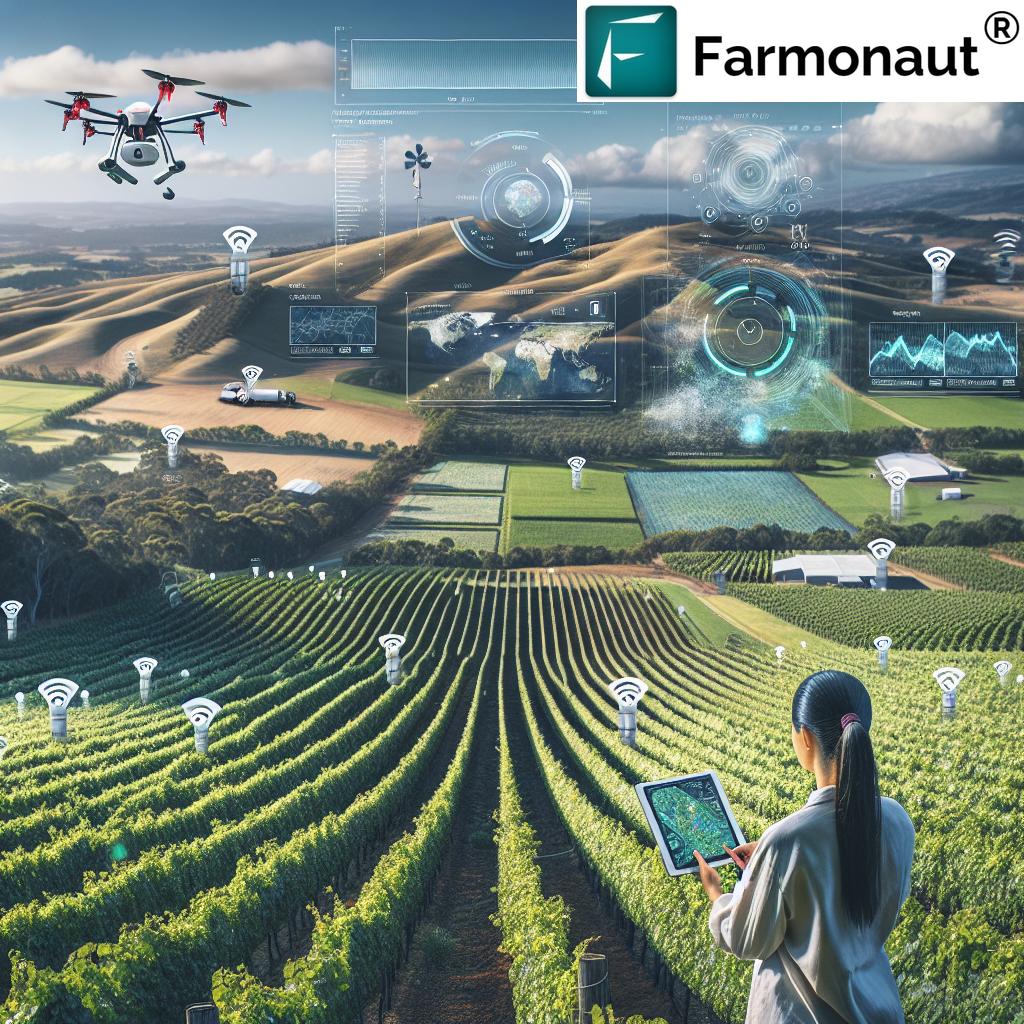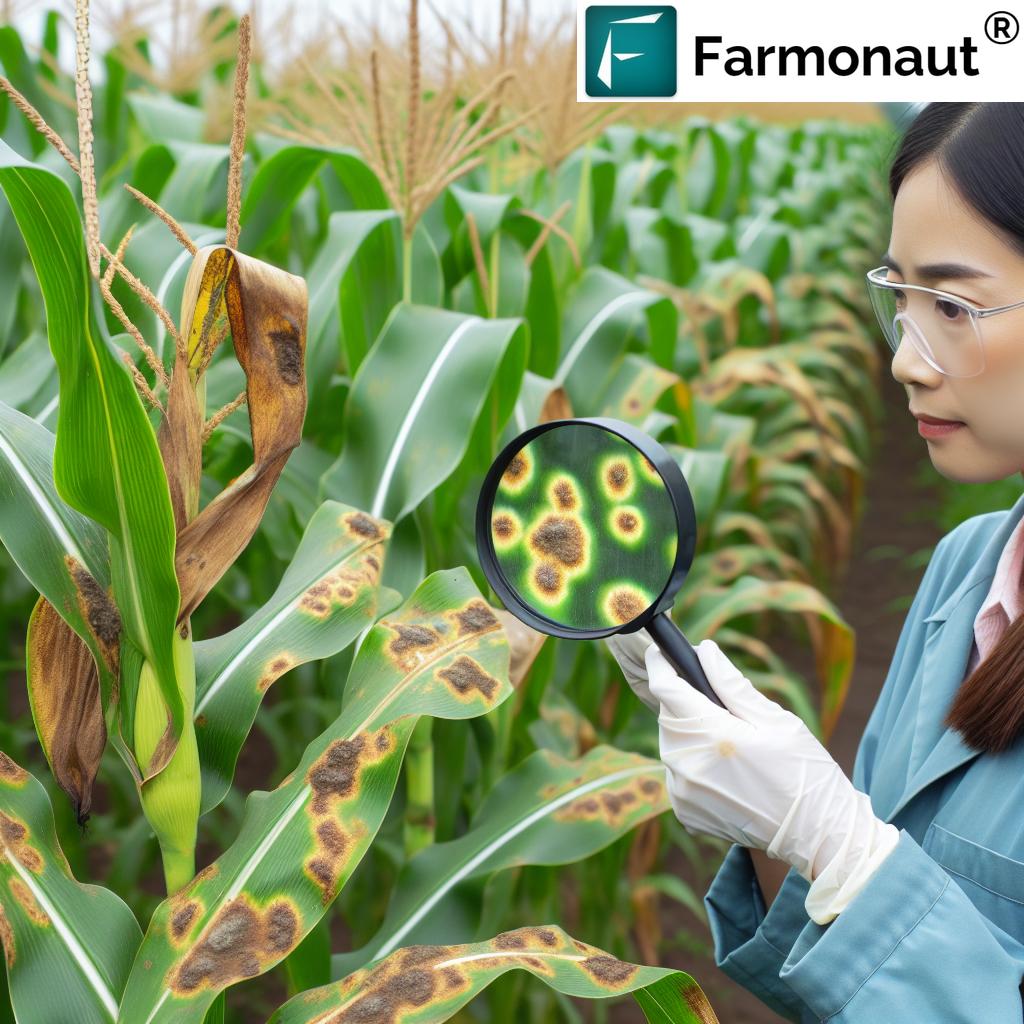Increase Crop Yield: 7 Powerful Precision Farming Solutions
“Precision farming can boost crop yields by up to 20% when combined with sustainable agricultural practices.”
Why Increasing Crop Yields Is Essential
As the global population continues to rise, the demands on modern agriculture grow ever more urgent. Our goal as a community of farmers, agribusinesses, and agricultural technology advocates is to produce enough high-quality food in a sustainable manner—preserving the health and productivity of our soil and ecosystems.
Increasing crop yields is at the heart of this mission. By nurturing each crop to its fullest potential using both traditional farming practices and innovative technologies, we address the challenge of food security while promoting environmental resilience.
In this comprehensive guide, we’ll show how integrating time-honored methods with modern agriculture technologies—especially precision farming solutions—is a powerful recipe for maximizing yields and global sustainability.
Traditional Agricultural Practices & Sustainability
Even before the age of data-driven farming and advanced technologies, farmers employed innovative methods to maintain soil fertility, manage pests, and boost yields. Let’s explore the foundational practices that have shaped sustainable agriculture across generations:
1. Crop Rotation: Rejuvenating Soil Health
Among classic agricultural practices, crop rotation stands out for its profound soil health improvement and productivity benefits. By alternating crops like legumes and cereals in a single field across multiple seasons, we break pest and disease cycles, encourage biodiversity, fix essential nutrients such as nitrogen, and ultimately boost yields—all central to sustainable agricultural practices.
- Crop rotation benefits: Improved nutrient cycling, natural pest control, reduced soil erosion, and higher yields.
2. Agroforestry: Harnessing Biodiversity and Natural Protection
Agroforestry offers important agroforestry advantages by integrating trees with crops or livestock within the same agricultural landscape. The result? Enhanced biodiversity, natural windbreaks, reduced soil erosion, improved soil structure, and diversified income sources. This approach creates a multilayered ecosystem where both plants and animals thrive, contributing to greater productivity and resilience.
- Benefits: Improved soil health, climate resilience, additional income from timber/fruit, and protection from extreme weather.
3. Conservation Agriculture: Protecting the Soil for the Future
Conservation agriculture emphasizes minimal soil disturbance, permanent soil cover, and crop diversification. Practices like no-till farming help preserve soil structure, enhance water retention, and reduce risks of erosion. These sustainable approaches ensure healthy soils for generations to come and, as research has shown, improve yields over time.
Modern Technology in Precision Farming
The new era of modern agriculture technologies introduces transformative opportunities for farmers, agronomists, and industry stakeholders. At the core of this revolution is precision farming: leveraging real-time data, advanced imagery, and smart devices to respond to the highly variable needs of crops and soil.
Precision Agriculture: The Digital Farming Revolution
Precision agriculture means deploying cutting-edge technologies: GPS-guided tractors, satellite and drone imagery, IoT sensors, and other smart equipment. Through monitoring factors like soil health, weather patterns, and crop performance, we optimize the use of inputs (water, fertilizers, and pesticides), reducing waste and enhancing yields.
Key Technological Innovations Driving Yield Improvements
- Satellite-Based Monitoring: Real-time and historical insights into vegetation vigor, soil moisture, and more.
- Drone and Aerial Imagery: Early detection of pest infestations, nutrient deficiencies, and irrigation issues.
- Internet of Things (IoT) in Agriculture: Deployment of field and soil sensors for precision irrigation, fertilization, and climate monitoring.
- Artificial Intelligence and Machine Learning: Predictive analytics for pest control, disease outbreaks, optimal planting times, and resource management.
- Automation & Robotics: Autonomous operations for planting, weeding, and harvesting—reducing labor requirements, minimizing human error, and enhancing productivity.
7 Powerful Precision Farming Solutions to Increase Crop Yield
Now, let’s dive into the “7 Powerful Precision Farming Solutions” that are reshaping agriculture worldwide, offering proven pathways to increase crop yields, optimize resource use, and ensure sustainable productivity.
1. Remote Sensing and Satellite-Based Crop Health Monitoring
Modern tools—like those offered by Farmonaut—harness satellite imagery and remote sensing to track vegetation health, soil moisture, and nutrient status at scale. Using multispectral images, we are able to:
- Detect early signs of diseases, pest infestation, and water stress across vast fields.
- Pinpoint underperforming plots for targeted input application.
- Optimize inputs and reduce losses, thus increasing overall productivity.
- Access critical insights directly on mobile devices through Farmonaut’s easy-to-use app.
For developers and agribusinesses wanting to integrate these insights, Farmonaut’s API and API documentation provide seamless access to remote sensing data for custom applications—a game-changer for large-scale digital agriculture!
“Data-driven agriculture reduces fertilizer use by 15%, supporting both productivity and environmental sustainability.”
2. Sensor-Based Soil & Field Monitoring (IoT in Agriculture)
The rapid deployment of IoT in agriculture means sensors for soil moisture, pH, nutrient status, and microclimate control are now commonplace—even for the smallholder. By gathering real-time data from the field, we can:
- Apply water and fertilizer only when and where needed (variable rate application).
- Reduce waste and run-off, protecting water resources.
- Automate irrigation and climate control, boosting yield despite unpredictable weather patterns.
IoT-driven platforms, such as Farmonaut, deliver these insights across smartphones and tablets—putting powerful monitoring tools in every farmer’s pocket.
3. AI-Based Advisory Systems and Predictive Analytics
What happens when we combine artificial intelligence with data-driven farming? The answer: smart, personalized crop management and decision-support. Solutions like Farmonaut’s Jeevn AI Advisory apply advanced machine learning models to remote-sensing datasets, automatically:
- Predict potential yield or pest/disease outbreaks before they escalate.
- Recommend optimal planting schedules and input timings based on historical and forecasted conditions.
- Guide farmers dynamically on crop rotation, soil health improvement, and resource allocation—all via a mobile platform.
This is the practical face of AI in agriculture: guided insights at the right time for every farm, every season.
4. Variable Rate Technology for Inputs
Variable Rate Technology (VRT) refers to digitally controlled fertilizer and pesticide distribution, customized zone-by-zone according to soil and crop needs. Instead of uniform application, farmers:
- Utilize field maps generated from satellite imagery or drone data.
- Enhance input efficiency, reducing waste and limiting chemical residues.
- Increase crop yields by aligning inputs to zones of highest productivity or need.
5. Automation, Robotics & Drones
Robotic and drone technologies transform tough farm tasks into streamlined, efficient operations:
- Drone-based monitoring for real-time crop health and in-season adjustments.
- Autonomous robots for planting, weeding, and harvesting, reducing labor costs and minimizing error.
- Precision spraying by drones slashes pesticide and water use, protecting both yields and the environment.
Farmonaut users can incorporate drone data into their digital farm records for analysis and action. (See Large Scale Farm Management solutions for integrating drone and satellite monitoring.)
6. Blockchain-Based Product Traceability
In today’s global food systems, transparency is critical. Blockchain technology allows farmers and companies to log every step of a product’s journey—from planting to harvest to consumer:
- Enhances trust and traceability, reducing fraud in agricultural supply chains and promoting ethical, safe food practices.
- Supports sustainable agriculture by rewarding producers who follow verified sustainable practices.
Explore Farmonaut’s Blockchain-Based Product Traceability solution for transparent, tamper-proof farm-to-table audits.
7. Carbon Footprint Tracking for Sustainable Agriculture
As environmental pressures increase, farmers and agribusinesses are looking to reduce their impact. Carbon footprint tracking enables us to:
- Understand emissions from each farming operation.
- Assess and minimize environmental impact as part of verified sustainable agricultural practices.
- Meet regulatory requirements and add value for eco-conscious consumers.
Discover how Farmonaut’s carbon footprinting solution provides actionable data for climate-smart, sustainable agriculture.
Comparison Table: Precision Farming Solutions Impact
| Precision Farming Solution | Brief Description | Estimated Yield Increase (%) | Environmental Impact | Level of Adoption |
|---|---|---|---|---|
| Remote Sensing & Satellite Monitoring | Uses multispectral imagery for crop health and field conditions | 10–20% | Reduced input waste, lower water usage | Medium |
| IoT Field & Soil Sensors | Deploys in-field devices to monitor soil moisture, nutrients | 8–18% | Lower chemical runoff, efficient water use | Medium to High |
| AI-Powered Advisory Systems | Predicts optimal planting, input timing, pest outbreaks | 12–20% | Reduces input excess, targeted intervention | Medium |
| Variable Rate Technology (VRT) | Zones fields for customized fertilizer/pesticide spraying | 10–16% | Lower chemical use, less leaching | Low to Medium |
| Drones & Robotics | Automates monitoring, spraying, and harvesting | 10–15% | Reduces labor, less environmental stress | Medium |
| Blockchain Traceability | Records every step of the supply chain for quality & sustainability | Varies | Higher supply chain transparency | Low |
| Carbon Footprinting | Tracks emissions for sustainable management | 5–10% | Reduced emissions, climate compliance | Low |
Integrating Traditional and Modern Practices
Blending the strengths of classic and contemporary agricultural practices is the secret to robust and sustainable crop yields—especially in regions with diverse farming systems. Here’s how we can integrate the best of both worlds:
- Data-Driven Crop Rotation: Use smart analytics to design rotation cycles that break pest and disease chains while maximizing soil fertility.
- Agroforestry with Precision Tools: Combine digital field mapping and drone monitoring with tree integration for improved structure and biodiversity.
- Conservation Agriculture + Tech: Overlay IoT sensors and remote sensing for optimized, resource-efficient no-till or low-disturbance systems.
This hybrid approach is recommended by leading experts as the most effective route to achieving higher yields and sustainable intensification across both smallholder and industrial-scale farms.
Farmonaut: Affordable Precision Farming for All
At Farmonaut, we believe advanced precision farming solutions should be accessible—not just to a select few, but to farmers everywhere. Our platform is designed to put transformative technologies and data-driven farm management at your fingertips, no matter the size of your operation.
Our Precision Farming Technologies:
- Satellite-Based Crop Monitoring: Get real-time NDVI, soil moisture, and health maps for smarter decisions.
- Jeevn AI Advisory: Let AI analyze your farm’s datasets and deliver actionable recommendations directly to your phone.
- Blockchain Traceability: Build trust with end-to-end product tracking. More at our Product Traceability Page.
- Resource and Fleet Management: Track machinery, optimize logistics, and cut operational costs. Learn about Fleet Management.
- Carbon Footprinting: Monitor and manage environmental impact, complementing sustainable agricultural practices. Details at Carbon Footprinting.
- Mobile & API Access: Use our Android/iOS/Web apps for instant insight, or integrate with your own platform using our API.
We’ve designed our platform to serve everyone—from smallholder fields to large-scale farm management—and to function seamlessly on Android, iOS, web, and through API.
Farmonaut Subscription Plans:
Easily scale up or down as your needs evolve—choose from cost-effective subscription packages suited for individual farmers, cooperatives, large businesses, governments, or research organizations.
Challenges and Considerations for Scaling Precision Farming
While the benefits are immense, some practical challenges remain in scaling modern agriculture technologies and precision farming solutions across the globe:
- Access & Affordability: Smallholder farmers may encounter barriers accessing advanced digital tools or reliable internet.
- Data Management: Harnessing vast data streams—turning raw information into useful action—demands skills and robust platforms.
- Training & Education: Both new and experienced farmers require continuous training to interpret data and best use AI, IoT, and analytics.
- Environmental Impact: Balancing potential risks (such as over-reliance on AI or data) with proven sustainable practices is vital for success.
Farmonaut is committed to reducing these barriers—offering affordable, user-friendly tools, scalable subscriptions, and extensive support for all users.
FAQ – Increasing Crop Yields & Precision Farming
What is precision farming and how does it increase crop yields?
Precision farming, also called precision agriculture, integrates real-time field data (from sensors, satellites, and drones) with smart analytics tools. It allows us to optimize the use of water, fertilizers, and pesticides, improve crop and soil health, and achieve higher and more sustainable yields per hectare.
Can traditional farming practices and modern technology work together?
Absolutely. Integrating time-tested methods such as crop rotation, agroforestry, and conservation agriculture with tools like IoT sensors, AI-based advisory, and satellite monitoring creates a balanced system. This approach preserves soil health, enhances biodiversity, and enables high productivity in the face of changing environmental conditions.
Why is data management critical in modern agriculture?
Data management underpins all digital agriculture innovations—from real-time crop monitoring to AI-driven decision support. Effectively organizing and interpreting this data enables us to make timely, fact-based choices about irrigation, input application, pest control, and harvest timing, maximizing both productivity and sustainability.
How can Farmonaut help small and medium-sized farmers?
Farmonaut democratizes access to precision farming by providing remote sensing data, field-specific AI recommendations, and traceability tools via affordable web/mobile apps and APIs. This empowers all farmers, not just large enterprises, to practice data-driven and sustainable farming.
What are the environmental benefits of precision farming?
Precision farming solutions support environmental sustainability by reducing input waste, lowering water consumption, minimizing chemical runoff, and fostering healthy soil and biodiversity practices. Carbon footprint tracking enables farmers to further quantify and manage their environmental impact.
Where can I learn more about Farmonaut’s solutions?
Visit our Product Traceability, Carbon Footprinting, Crop Loan & Insurance, Fleet Management, and Large Scale Farm Management product pages to explore all features, benefits, and use cases.
Conclusion
Increasing crop yields is a universal imperative—one that is best addressed by combining traditional agricultural practices with the most advanced modern agriculture technologies. Through an integrated, data-driven farming philosophy, we are empowered to meet global food demands while building a more sustainable and resilient agricultural system.
At Farmonaut, our singular mission is to make precision farming solutions accessible everywhere—supporting farmers, agribusinesses, governments, and NGOs in achieving optimal productivity, minimizing environmental impact, and transforming agriculture for the challenges of the future. Discover the possibilities with our platform, and join us in shaping a more sustainable world.


